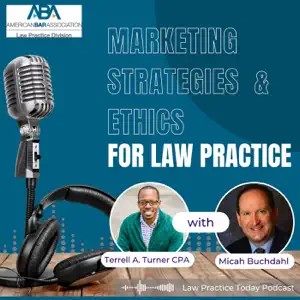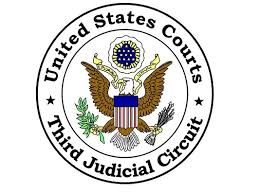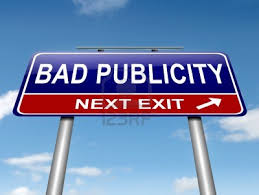ABA Law Practice Podcast — Marketing Strategies and Ethics for Law Practices
 In the January 20, 2025, episode of the American Bar Association’s Law Practice Podcast, host Terrell Turner discusses the complexities of legal marketing with me in this 30-minute discussion available on americanbar.org as well as in your favorite podcast library, including Spotify and Apple.
In the January 20, 2025, episode of the American Bar Association’s Law Practice Podcast, host Terrell Turner discusses the complexities of legal marketing with me in this 30-minute discussion available on americanbar.org as well as in your favorite podcast library, including Spotify and Apple.
Micah Buchdahl, who concentrates his practice in marketing, advertising, and solicitation issues at the state bar level, shares his vast experience working with aggressive law firms. The conversation covers the evolution of advertising from print to digital, the impact of changing algorithms on marketing strategies, and the integration of influencers in legal marketing. Micah emphasizes the importance of understanding multi-jurisdictional ethical rules and the responsibility that law firms hold over their marketing practices. This episode provides valuable insights for law firms navigating the rapidly changing landscape of legal advertising.
The Law Practice Podcast is hosted each month by Terrell Turner, the founder of accounting firm, www.TLTurnerGroup.com.
 Marketing Attorney Blog
Marketing Attorney Blog


 In recently reviewing a law advertising campaign, I found myself saying that we need to run this on
In recently reviewing a law advertising campaign, I found myself saying that we need to run this on  In the March 2018 issue of the American Bar Association’s
In the March 2018 issue of the American Bar Association’s  e a Judge or attorney fascinated (or at least feeling like you need to know this stuff) by the world of social media, consider attending the
e a Judge or attorney fascinated (or at least feeling like you need to know this stuff) by the world of social media, consider attending the 




